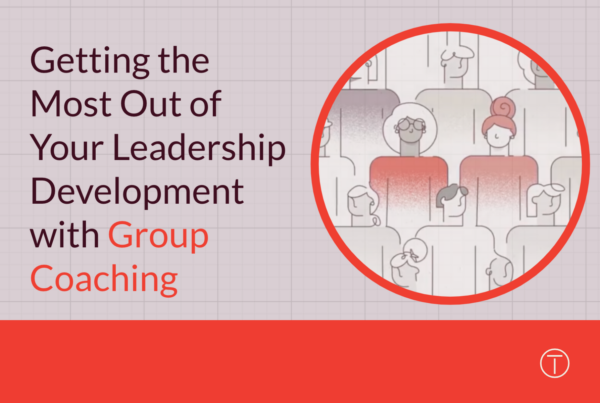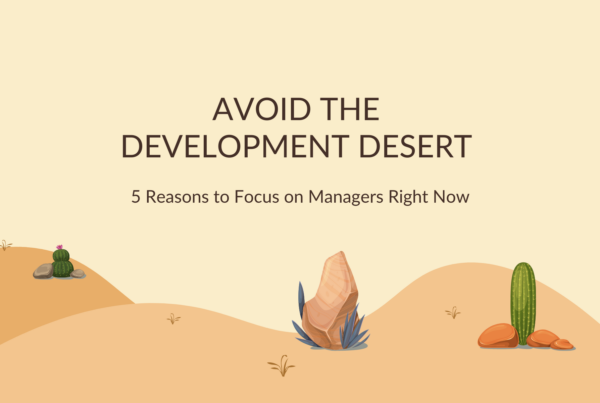Which leader is more likely to succeed? The one that yells and threatens when under duress, or the one that can relax, step back and evaluate the situation carefully before making decisions?
We all know who we’d rather work with, and who we’d rather see leading the teams at our company.
For leaders to succeed, they must understand and work to improve their self-awareness, self-management, motivation, empathy, and social skills. We’ll take a closer look at what these skills entail, why they are considered core to emotional intelligence, and what impact they can have on leaders and the teams they manage.
What is Emotional Intelligence?
Popularized by internationally renowned psychologist Daniel Goleman in the mid-nineties, emotional intelligence is how we perceive our own emotions and the emotions of others. As Goleman explains in this short video, “It’s how well we handle ourselves and our relationships.”
Goleman first came across the term in 1990 while working at the New York Times, and recalls why the idea struck him. “Those were days when the preeminence of IQ as the standard of excellence in life was unquestioned; a debate raged over whether it was set in our genes or due to experience. But here, suddenly, was a new way of thinking about the ingredients of life success.”
Now, the concept of emotional intelligence (also known as EQ, emotional quotient) is widely accepted as a key ingredient of life, and business, success.
The Five Pillars of Emotional Intelligence
Emotional intelligence is based on five primary skills and you can measure emotional intelligence on different scales. These are domains in which leaders can work to improve their approach to managing relationships. We’ll examine the definition for each, as well as a simple first step to improving this skill among your leaders.
1. Self-Awareness
For leaders, self-awareness represents the ability to fully understand how they are affected by their emotions, and in turn how their actions impact others. It can provide greater clarity of their strengths and weaknesses and help them better engage with a growing team.
Taking action: A leadership self assessment is a great way to help leaders start to identify their strengths and areas for improvement. Combining a self assessment with peer feedback through a 360 provides another viewpoint.
2. Self-Management
At its core, Goleman says this skill is about handling negative emotions in an effective way. Through greater self-awareness, leaders can regulate their emotional responses to tense situations. This means fewer angry attacks and rushed decisions in “the heat of the moment.” Not only is self-management about controlling one’s emotions, it’s about a leader’s ability to hold themselves accountable when they don’t control them.
Taking action: Personalized coaching for leaders is a great way to support leaders in building the discipline and self-reflection it takes to self-manage. Coaches can be a neutral party in helping leaders unpack their response to a situation and set a good example for their team.
3. Empathy
Empathetic leaders are focused on understanding what others are feeling, especially those on their team. How does this person feel today? What do they expect and how can their lives be made better? These are the questions an empathetic leader will ask. Employees often perform better when they know that their manager cares about them on a personal level, and behaving in an empathetic way is one way managers and leaders can demonstrate this.
Taking action: What are your leaders asking of their team in one-on-ones? Guide leaders to check in with their team on a personal level to build empathy, before diving into more project-focused items.
4. Social Skills
Social skills take many forms, but in the context of emotional intelligence, this most often refers to how a leader creates and maintains meaningful relationships. This manifests in a leader’s ability to influence behaviors, communicate good and bad news, manage conflict, work through major changes in the organization, and collaborate with members of their team.
Taking action: Provide proper training for new leaders. Transitioning from individual contributor to manager is a big step for many people. Building and maintaining meaningful relationships with new direct reports and being the intermediary between one’s new team and other company leaders doesn’t come easily to everyone.
5. Motivation
Motivation is a leader’s ability to work towards goals regardless of the adversities they face. They hold themselves to a higher standard than anyone else, and practice daily gratitude, looking for the positive signs of success that will encourage greater resilience.
Taking action: Are your leaders generally positive about the work that they do? If you’re sensing or getting feedback that leaders are feeling defeated, this attitude can quickly spread amongst their team and lead to demotivated and disengaged employees. Help leaders find their motivation by providing clear goals like OKRs or another framework that works for your culture.
The Benefits of Improved Emotional Intelligence
IQ alone is only a partial indicator of success. The ability to know oneself, connect with others, and weather a storm of challenges as you mature as a leader are important indicators of successful leaders. In today’s best companies, hiring for emotionally intelligent leaders is imperative.
Tawni Cranz, HR Leader and Former Head of People at Waymo says, “The biggest way I’ve differentiated how to look for leaders is, looking for not just raw talent or skills or experience, but really looking for people that have strong emotional maturity and awareness. If I look back 10 years ago when we were hiring, we didn’t look as much for those types of skills. People would have deemed them soft skills. And now I think they’re the hard skills that we need to be successful in the workforce.”
Want to learn more from Tawni on hiring for increasingly human centric workplaces?
Watch her interview with Torch CEO Cameron Yarbrough below
Often, those leaders who sustain high performance are strong in a number of skills, especially those related to emotional intelligence. Some of the benefits these leaders gain from this include:
- Awareness and Control of Pride
Leaders often struggle to change course on a decision made in haste. Self-aware leaders can recognize when something isn’t working and are confident enough to admit a mistake and not let strong emotions get in the way of making the right decision. Pride can be damaging not only to the leader but their team, who can see when a bad decision is made out of stubbornness. Through greater awareness, leaders can overcome this urge and make decisions in the best interest of everyone. - Balanced Delivery of Good and Bad News
One of the most impactful things a leader can do is deliver news. Done properly it can motivate a team to perform at a higher level. Done poorly and it can either devastate or lull a team into a false sense of security. Leaders with strong emotional intelligence will recognize the impact that news will have on their team and deliver it in a way that encourages everyone. - Improved Self-Care
Leaders with high emotional intelligence will not only recognize the signs of excessive stress and burnout but will proactive take steps to address the issues before they can impact employees and in turn the company. They set an example for their team and take actions to encourage employee self-care as well. - Resilience in the Face of New Challenges
The environment of a fast-growing company can be loaded with challenges. Leaders with strong emotional intelligence can recognize the emotional impact a bad day has on their team and remain resilient, taking the bad news in their stride and balancing their response with the long-term implications.
As Goleman said in a recent speaking engagement, “The higher you go in the organization, the more emotional intelligence matters. For top level jobs, like the C-suite for example, 80-90% of the competencies that companies themselves identify as distinguishing stars are based on emotional intelligence. This makes sense because what you’re doing at that point is not using your technical skills…what you’re doing mostly is managing people. The art of leadership is getting work done well through other people.”
In order to motivate people to do their best work, you need emotionally intelligent leaders. The good news is, this skill can be developed and honed by leaders on the job. Providing leaders with coaching is a great way to build a foundation of emotional intelligence. Coaches can be a guide through the 360 feedback process and ongoing throughout leaders development.
Check out our ebook, 10 Leadership Styles You Should Know, to learn more about different approaches to leadership and when and how to apply them.



